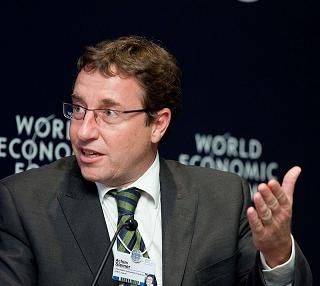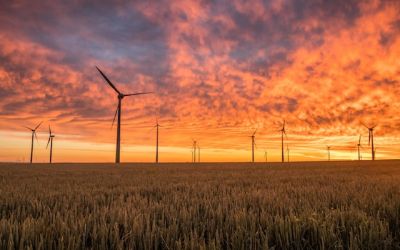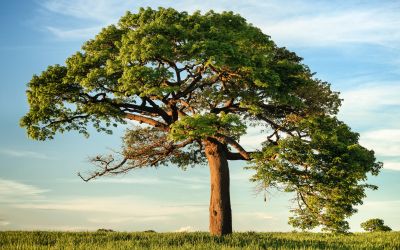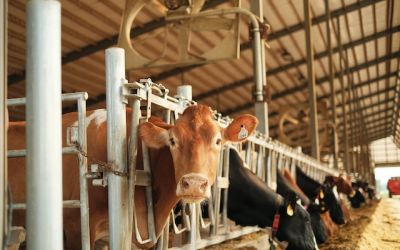Keynote Speech by UNEP Executive Director at the Official Opening of World Environment Day in Angola
United Nations environment chief, Achim Steiner, met Angolan officials on Sunday to celebrate World Environment Day 2016 and address environmental challenges in the southern African nation

Excellencies, Ministers, Ladies and gentlemen,
I am very happy to welcome you to World Environment Day from Luanda, Angola. Since its creation in 1974, this day has been dedicated to raising awareness about the globe's most pressing environmental problems: the loss of biodiversity and ice cover, the spread of desertification and deforestation, the need for an inclusive green economy and, of course, hunger, with the launch of the Think. Eat. Save. campaign, which we still use to highlight that a third of all food is still wasted.
This year, with the clock already ticking on delivery of the 2030 Agenda on Sustainable Development, we are asking the world to help end illegal trade in wildlife, because this not only concerns the obvious goals like protecting 'life on land' and 'life below water', but also directly impacts the goals addressing poverty, hunger, inequalities, economic growth, climate change, health and wellbeing, as well as peace and justice.
In other words, this one action will help the world make progress on more than half of its priorities for the next 15 years.
The good news is that an incredible array of wild animals still roam across the land and seas of this planet. The geese of Canada and Egypt, the big cats of Africa and Brazil, and the bears of China and Europe may be national icons, but migration patterns mean that a single species can have a place in many cultures and economies around the world, so this must be a shared endeavour. The impact of the illegal trade in wildlife is no more restricted by national boundaries than the biodiversity it exploits.
Just yesterday I visited Angola's Cuando Cubango province whose rivers connect the country's highlands and the Okavango Delta. Over the last 10 years I've been lucky enough to see some incredible wildlife in Kenya, where UNEP is based, but to see the vast landscapes of Cuando Cubango's wetlands and to learn about their extraordinary biodiversity was truly inspiring.
Angola's commitment to conserve these landscapes and ecosystems is a commitment not only to its people and those of neighbouring countries, but to the natural heritage of the world.
And one thing I will never tire of - in Angola, in Kenya or anywhere else - is the sight of herds of wild elephants. When you think of iconic species, elephants still hold a special place for all of us, from when we first discover them in children's books or, for a lucky few, when we first encounter them on trips to Asia and Africa.
Indeed, Angola's new elephant management plan is just one of many reasons why we are here to launch World Environment Day to show how serious Angola is about combatting illegal trade and to highlight that not only are these incredible animals worth more alive than dead, but their healthy existence can actually help countries and communities to heal and rebuild after times of conflict.
Years of internal conflict took a heavy toll on Angola's people, ecosystems and wildlife. Local people, forests and big game suffered as a result of landmines, poverty and poaching that destroyed valuable natural heritage while international criminal networks exploited the illegal trade in wildlife, timber and related products for their own gain. It's a scenario we have seen too many times before, with at least 40 per cent of intra-state conflicts in the last 60 years linked to natural resources and 18 civil wars since 1990 financed by their illegal exploitation.
But the people and Government of Angola are turning the tables.
They have not only signed up to the 2030 Agenda and the Paris Agreement on Climate Change, strengthening regional and global relationships.
But they have also taken steps to start delivering on those commitments, reclaiming their natural resources and re-focussing them to build peace and prosperity for the today and for the future.
At a national level, Angola is using policy, legal and administrative measures to combat illegal wildlife trade. UNEP looks forward to supporting Angola in sustainable mining, environmental education and the management of waste, ecosystems and disasters. This will help the country to realize the true potential of its natural capital and ecosystem services, to support national development planning and budgets.
And at regional level, Angola plays a key role in tackling the illegal trade in wildlife through enforcement, governance, training, capacity development and the use of new technology, including strengthening the enforcement of wildlife laws and domestic market regulation in line with The Convention on Illegal Trade in Endangered Species (CITES); co-operating on the African Strategy on Combatting Illegal Exploitation and Trade in Wildlife and supporting the work of the African Ministerial Conference on the Environment (AMCEN) on the Agenda 2063.
This kind of co-operation is vital in protecting places like the Mayombe Forest, which is a transboundary ecosystem. The thousands of birds, plants and animals that inhabit it have felt the heavy hand of increased poaching and illegal trade in wildlife and timber. In particular, the gorillas, chimpanzees, parrots and guenon monkeys are victims of an international commercial system of trading in pets.
Sponsored Content
Angola, the Republic of Congo and the Democratic Republic of Congo work together to protect their shared resources through UNEP's Mayombe Initiative, which Gabon has also asked to join.
Such initiatives are not only important for Angola's conservation and sustainable development, but for delivering Africa's Agenda 2063 and for ending the illegal trade in wildlife that destroys so many communities and species around the world.
That's why the commitment seen in Angola and across the African region is part of an even bigger, global effort to protect endangered wildlife from illegal trafficking; an effort that has seen a unanimous resolution at the UN General Assembly transformed into specific targets in the 2030 Agenda.
This determination was underscored at the United Nations Environment Assembly (UNEA) just over a week ago, when we launched the UN's global campaign to end the illegal trade in wildlife.
The campaign, which UNEP is coordinating with UNDP, UNODC, and CITES, uses the theme - "Wild for Life." It underscores that greed, fashion, ignorance, indifference, investment, corruption, pseudo-medicinal use and cultural belief should not result in threats to any species. It aims to mobilize millions of people to take a personal interest, make commitments and take personal action in reducing the perceived distance between consumers and wildlife crime. And by asking participants to "give their name and change the game", it encourages them to use their own spheres of influence to end the illegal trade in wildlife.
With UN Goodwill Ambassadors and celebrities such as: Yaya Touré, Ian Sommerhalder and Neymar Jr. highlighting the plight of species at risk around the world, the campaign is already going viral.
I invite you all to take part - because on a challenge of this scale - every gesture counts.
No one says it's going to be easy, but the task is formidable. From 2010 to 2012, 100,000 elephants were illegally killed for their ivory. In 2011, the Western Black Rhino was declared extinct and the last three Northern White Rhino exist only under armed guard. The great apes are already gone forever from Gambia, Burkina Faso, Benin and Togo, and will soon disappear from many other countries if another 3,000 continue to be taken from the wild every year. And pangolins are the most illegally trafficked mammal in the world, yet most people still need Google to know what they look like - how do you get people to care about losing something, when they don't know it exists?
But lack of knowledge and the illegal trade in wildlife aren't the only pressures driving many species to extinction. The loss of habitat as a result of expansion in farming, mining, urbanization, deforestation and climate change all take their toll.
At a time when so many countries - developed and developing alike - face economic austerity and international competition, it simply does not make sense to allow the systematic destruction of an asset that is worth more alive than it is dead.
An asset, which if properly managed, can generate sustainable revenues to fund the education, healthcare and infrastructure that will lift people out of poverty and drive economic growth. For example, the tourism that already brought sub-Saharan Africa over $36 billion and contributed over 7 per cent of its GDP in 2012 is expected to bring 3.8 million jobs over the next 10 years. And each live gorilla earns Uganda about $1 million per year in tourism revenues, while Rwanda's growing tourism industry is now worth well over $304 million - something that was unimaginable 20 years ago.
In other words, the stakes are too high to fail. So, our efforts must be three-pronged. We must address the issue wherever and whenever wild plants and animals are killed or captured illegally. We must address the trade route, transit hubs and technical legal loopholes that allow this illegal trade to continue. Finally, we must address this beyond the prism of local or national interest - this is our shared responsibility and it is our sustained collective action, not one-off actions, that will determine the future of this planet and the people that depend on it.
Because ending the illegal trade in wildlife and timber is crucial in ending a poverty cycle which too often works against natural resources, instead of with them.
The 2030 Agenda can help us on this road, but we must be united in the cause and we must have zero tolerance for illegal trade around the world.
On that note, I hope that on this World Environment Day, you will all be "Wild for Life."
Thank you.






